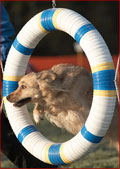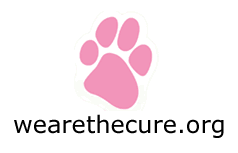The Beauty Of The Man-Dog Partnership
By: James Carroll, Boston Globe
A DOG came back into my life not long ago. I spend a lot of time with her. At a so-called dog park, she cavorts with others of her species, while I, along with members of mine, hover on the edges carefully watching, plastic bags at ready.
Such dog owners, witnessing a temporary animal primacy, enter into a different kind of time. Perhaps it’s that we leave “time’’ aside, joining our pets in the perfect present tense; in the simple awareness of the merely physical; in the thrill of having an unfettered impulse and being allowed to act upon it. Dogs at a dog park are like pinballs careening from post to post, or like madly splitting atoms en route to critical mass, orchestrated chaos. They are wholly defined by exertion and release, freedom from the usual restraints. No wonder we the owners can only stand and behold.
My family’s dog is a pure athlete, dashing after tennis balls, lapping the circuit at the fence, leaping the carefully placed boulders. With other dogs, she finds her match at the growling play from which humans only shrink.
The faux aggression, as they bare teeth without actually sinking them, is like a display of memory, nostalgia for the brute skill that enabled their forebears to survive. The park is an artificial space necessary to the urban setting, with raked gravel instead of soil, piped water, and escape-proof gates, but that does not prevent the dogs from returning, for the span of our visit, to a state of nature that soothes even those of us who are mere observers.
What is it about dogs and human beings?
It is impossible not to think back to the era when this relationship began. In telling the story of civilization, anthropologists link the invention of agriculture with the “domestication’’ of animals as the historic breakthrough. But domestication suggests, even in the etymology of the word, something that insults the esprit of the dogs before us. The idea seems to be that our ancestors, in “housebreaking’’ wolves, found ways to dominate and train them, but is that what happened? Were humans all that powerful, and the canines all that susceptible to being mastered? At the risk of engaging in what scientists might call baseless speculation (also known as B.S.), let me ask if, instead, the relationship began as a kind of accidental partnership from which each drew benefits, with each getting a better life. In that case, as a friend once suggested to me, symbiosis would be a better word than domestication.
It might have worked like this. Humans, in discrete tribal groups, gathered round their fires. They cooked meat, and discarded the inedible scraps. Canine creatures, attracted by the light and warmth of the fire, found the scraps to be delectable. It paid them to rein aggression and hover at the edge of darkness, waiting for tossed bones and gristle. A pattern of expectation and reward was established. The canines, in protecting their find from other animals, became inadvertent protectors of the humans, who then had reason to encourage them to hang around. Over time - many generations, one assumes - a kind of contract was established. The wolf gets fed, and acts as a kind of sentry. At a certain point, the wolf becomes a helper in other ways, joining in challenges of the hunt, and control of the herd. The wolf has become a dog.
Note that the heart of this relationship was not domination but partnership. Humans and canines were equally of the natural world.
As civilization unfolded, and the made environment came to seem at odds with the given domain of nature, humans began to imagine theirs as a realm apart. “Nature’’ was there to be mastered and exploited, an outer circle into which scraps could be discarded. The consequences of this thinking define the looming crisis of environmental catastrophe. Did it begin when humans misremembered animal domestication, seeing a beast to be whipped instead of a tentatively discovered partner with reasons of its own for drawing near?
Perhaps this bond is what we contemplate in beholding dogs as wonders, recognizing creatures who would lead humans back into the natural awareness on which Earth’s survival now depends. And why shouldn’t we love them?







 Ontario Dog Sports
Ontario Dog Sports
Reader Comments